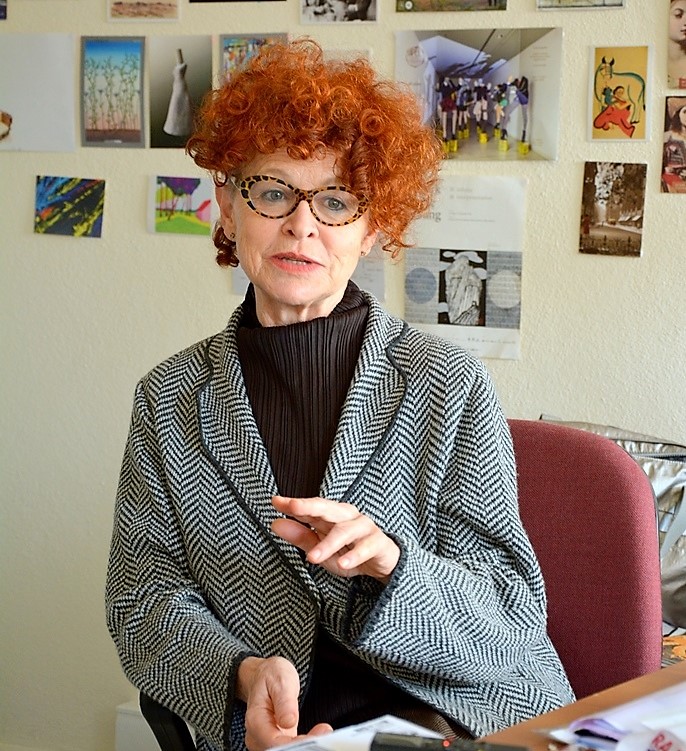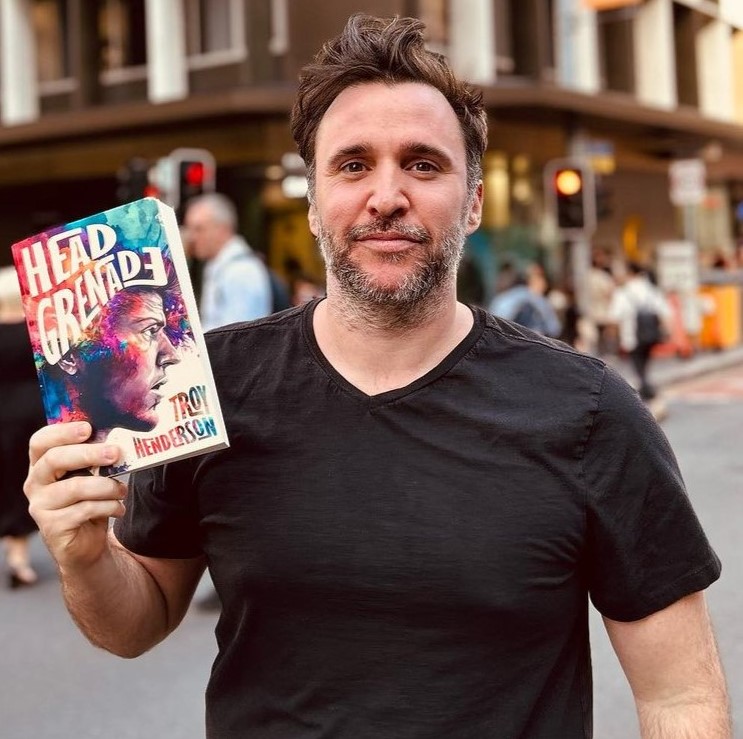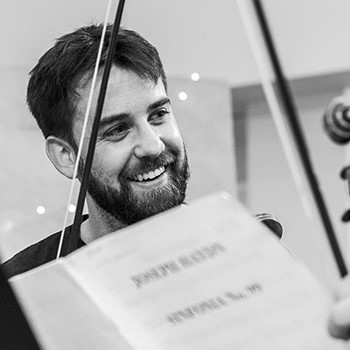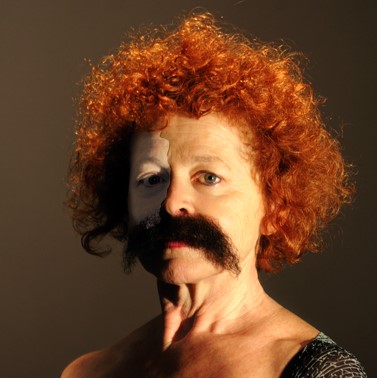
Inez Baranay
Author
Sydney, Australia
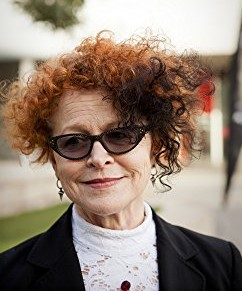 Publication is time for cautious optimism and restrained celebration. Inez has signed with Melbourne based publisher Transit Lounge for Turn Left at Venus, her ninth novel.
Publication is time for cautious optimism and restrained celebration. Inez has signed with Melbourne based publisher Transit Lounge for Turn Left at Venus, her ninth novel.
“I hope Turn Left at Venus finds its readers and gives some pleasure,” said Inez.
“It might also lead readers to the two novels just before it, Always Hungry and Ghosts Like Us — I think of these as a kind of trilogy.
“The writing of this novel was on and off over several years with many ups and downs.
“I particularly remember an outstanding return residency for a month in Ventspils (Latvia) where a final draft was in sight. I began this novel over a few weeks in Antwerp, mostly wrote it during some years in Turkey, during which time I also worked on it (badly) during a month in Budapest, tried to figure out its shape at a writers workshop in Bulgaria, and finished it when I returned to Australia last year.
“Apt for a novel that moves around in time, around the globe, into inner space and outer space.
“Why even did I think I could write this: a complex structure — various threads, several voices, how to arrange them, in what sequence, what kind of rhythm this structure makes, how would I ever describe this novel.”
Anyone who can put a full stop at the end of their sentence dreams of a writer’s life. Is it trial and error, intuition, dogged determination, persistence, blind faith or divine intervention, insightful intelligence and research that guides the writer. Writing for Inez was, perhaps still is, a mystery however, writing was what she knew she would do.
“I was an addicted, eclectic, constant reader from as soon as I could read,” said Inez. “I wondered about words all the time. Perhaps having different languages at and outside home had something to do with it, but even to say so is to play the game of finding reason where none really can be known.
“Writers are born that way, maybe that is true.
“The need to make writing the basis of one’s life is a kind of mental affliction— I use the word affliction as there is no word that combines affliction with gift.
“But a regular kind of job was not for me, and that’s the kind of mentality that led me to volunteer and be sent to Papua New Guinea, out of which experience I wrote Rascal Rain, (published 1994), and my life changed.”
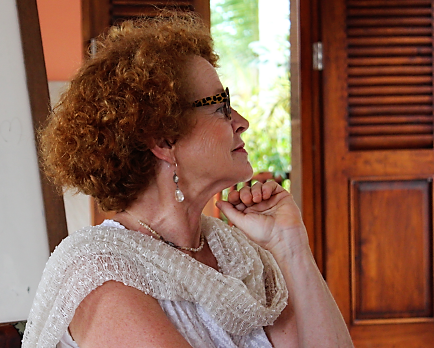 Possibly the worst thing anyone could say is ‘you haven’t changed a bit.’ You’d wonder what have they not done to remain exactly the same person, intact, unmoved, unlined, unimagined, unresolved. It is no surprise when talk of change was raised Inez had more to add, notably in her relationship with writing.
Possibly the worst thing anyone could say is ‘you haven’t changed a bit.’ You’d wonder what have they not done to remain exactly the same person, intact, unmoved, unlined, unimagined, unresolved. It is no surprise when talk of change was raised Inez had more to add, notably in her relationship with writing.
“I have always done something different, invented new challenges of structure and voice, for each work,” she said. “That is the constant of my books.”
“Change is not necessarily progress, progress is not necessarily linear, lines don’t always go forward or upward.
“Writing never gets easier but does have easier and less easy days, periods of time.
“Some books had more pleasure than others in their writing though the times one is immersed and in the spell when it’s working there is no thought of ease or its lack.
“New ideas are plentiful, perhaps infinitely so; but the one that takes hold and persists and demands more and more attention, the one around which notes accumulate, the one that drives your reading and thinking, that’s the one that becomes the next work you must commit to.”
Writing is a creative act, artistry, a craft. The opportunity to spin a yarn. To raise your voice, to right wrongs. To mark changes in thought, passages of time, ways of doing life.
“Depends what kind of writing you’re doing at any one time, and on who you are,” Inez mused. “It is always a creative act, and sometimes just a hard slog, it’s work.”
“Certain kinds of craft are necessary in different ways to different writers at different times. Story telling is the least of my interests. I don’t like the popular emphasis on story in the larger culture, as if it were the driving purpose and the main, even only, satisfaction.
“The going on about story so much is part of late capitalism somehow; Joan Didion said all narrative is sentimental; the refusal of sentimentality is something I value. E.M. Forster said mournfully, regretfully, that oh dear yes the novel must tell a story and I share his regret and also rejoice where the idea of what a novel is or can be is not necessarily based mainly on telling a story.
“If not story, then what interests me, to write, to enjoy in others’ writing? It’s language — those elements we call voice and style, the refusal of cliché.
“Ideas is what I ask of writing— make me think excitedly, make me have new thoughts, take me where I haven’t been. Writing is about language.”
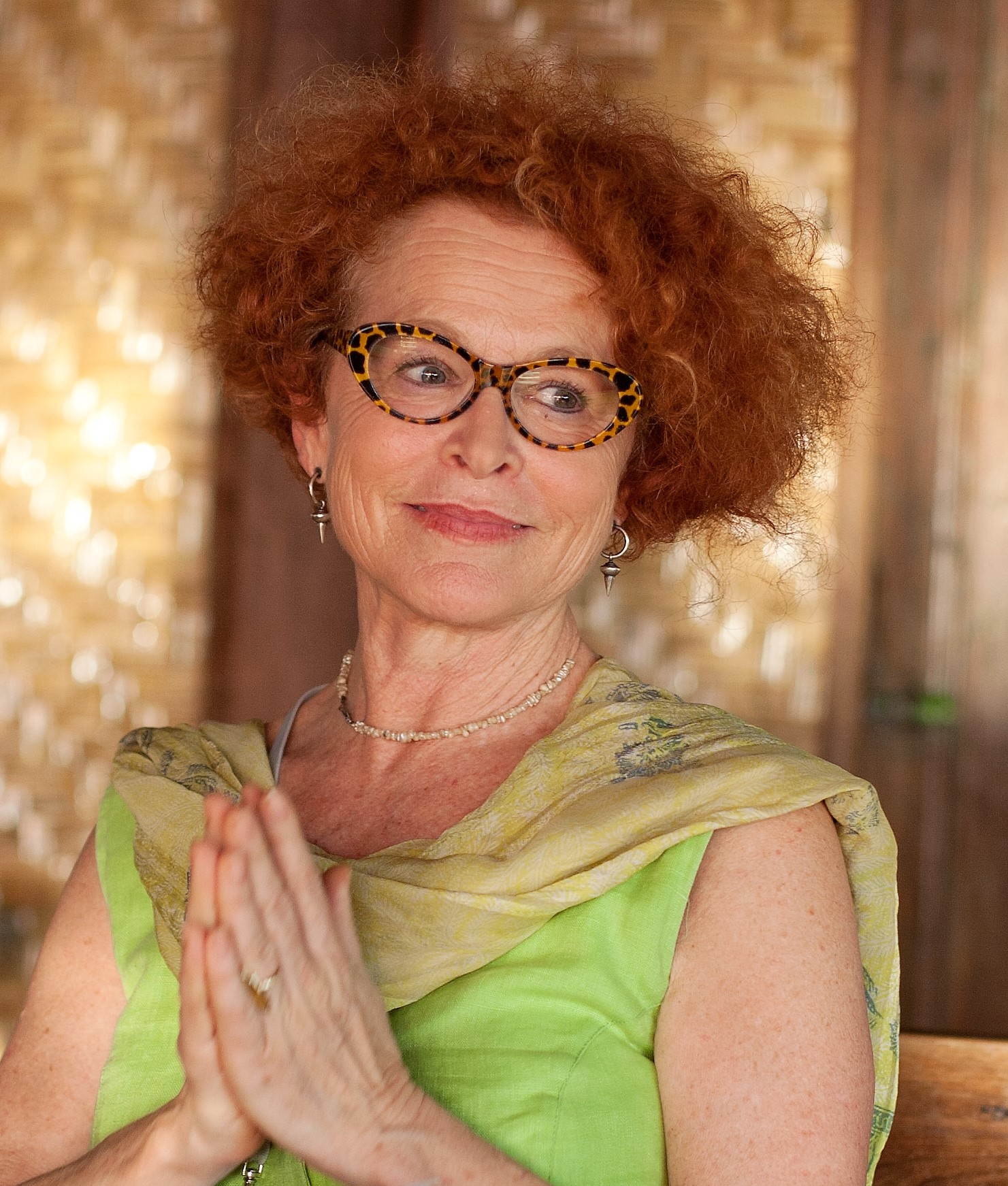 The time comes for a writer when the manuscript must be handed over. New eyes scrutinise every word. The work will pass through many hands. Assessment made, opinions offered, print viability discussed, judgement passed.
The time comes for a writer when the manuscript must be handed over. New eyes scrutinise every word. The work will pass through many hands. Assessment made, opinions offered, print viability discussed, judgement passed.
“Strangely, extra insights and detachment come to me about a new work after handing it over to its first reader,” Inez said. “Even before that reader has given me their feedback.”
“The work being read by someone else seems to change the work. There’s probably an advanced physics explanation for this. Those few very few first readers are long-time writer friends whose response is essential at the stage I can do no more. Once I know that I have written what I think I have written, from my treasured beta-readers, I am free to pity any publisher who rejects it, insert laugh emoji.”
Publishing houses have changed. Publishing opportunities have declined, or at the very least changed in nature as a result. This is an issue for all writers. Inez explains it so: “In the 1980s as the pernicious doctrine of neo-liberalism colonised even the once-venerable business of publishing which had not been meant to be like other businesses, then the idea of “the market” became the credo and arbiter of the choices publishing houses made, more and more so as the years went on.
“As the marketing department became the main decision maker, the place and existence of in-house editors declined, cross-subsidisation within a publishing house (eg a celebrity cookbook would subside the poetry list) was eliminated and each separate book was meant to make money (eliminated, then, were the poetry lists, the experimental works, those things that once gave publishers cachet, prestige, distinction, and a place to gamble on tastes being vindicated a long way further along in time).
“Editing services became a commodity; advice and assistance to writers became a commodity. Creative writing programs in the university began as a place to employ writers and provide a place free for discovery and experimentation but then began to seek students who desired to produce best-sellers and win prizes. Blander, safer work came from the mainstream, and publishing houses went through a series of mergers and acquisitions to the point where now there are only 3 main global mainstream publishers.
“But (true to my own predictions) we have seen the rise of independent publishers, the smaller publishers, way smaller usually, who are being vindicated even in the marketplace of prizes and sales through choosing the more marginal, unfamiliar, experimental voices.
“The big ones of old did publish me once and now they wouldn’t but I really don’t want to be with them anyway. It’s often said of books that did well for mainstream publishers not even that long ago — 1990s — that they wouldn’t be published today: “too experimental”. In these times of rising fascism the safe and familiar is a common choice.
“And now too technology provides easier cheaper ways for people to self-publish and find their readers. For example: I provided electronic editions of my books and then also (because people often prefer paper books) created my own print-on-demand publishing project, Local Time Publishing, to make available my back list in well-designed paper editions, and added some new titles to it too.”
Often it’s heard how solitary, lonely, a writer’s life is. Have you noticed these words have not entered Inez’s language talking about her life as an author? So, how does a creative force value their work and protect, nurture and feed the “afflicted gift”?
A moment’s reflection before Inez replies, “Survival, persistence, dedication. Which might also be called stubbornness, lack of options, obsession.
“I take care of my health in all the best, simple ways there are: good food, fresh air, sleep. Nurturing friendship. Keeping up my yoga practice. Reading poetry, reading widely and listening to music.”
Link to: http://www.inezbaranay.com
Amazon link: https://www.amazon.com/Inez-Baranay/e/B001HPKNUO
Lulu link : https://www.lulu.com/shop/search.ep?keyWords=Inez+Baranay&type=
Link to: https://thegodlesstraveller.com///pictures/word-worthy/



